
« Back to All Staff


As Director of Climate Engagement at Hazon, Rabbi Jacob Siegel works with Jewish institutions across North America to begin their journey toward climate action. Rabbi Siegel is an expert in Jewish values and ESG (environmental, social, governance) issues, and previously served as Director of Engagement for JLens, the Jewish impact investing organization. He is the author of Put Your Money Where Your Soul Is (forthcoming April 2022, Ben Yehuda Press) and serves on the board of his local credit union.
Eugene, OR | 212.908.2520 | jacob.siegel@hazon.org
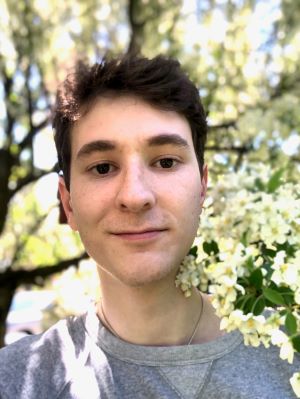
Ari’s passion for the environment began at a young age and has been a central focus in his life. He cultivated this passion during his time at The University of Michigan where he received an environmental sciences B.S. degree. While in Ann Arbor, Ari was fortunate to spend time with the Michigan Energy Innovation Business Council and the Erb Institute Undergraduate Fellows Program. Born and raised in SE Michigan, Ari enjoys growing a summer garden and spending time exploring Michigan’s outdoors. He is excited to be part of a team working to integrate environmental education and stewardship into Jewish life in Southeast Michigan and to work in support of environmental justice.
Detroit, MI | 248.419.9084 | ari.cohen@hazon.org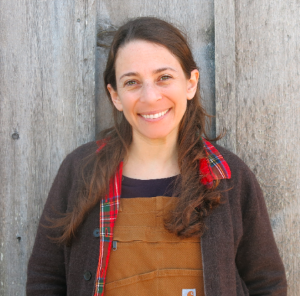
Risa’s journey to Hazon began in 2005, when she joined Teva as an environmental educator. In 2008, she grew veggies, milked goats, and dabbled in the art of fermentation as an Adamah fellow. In 2009, Risa returned home and served for 13 years as the founding Executive Director of Shoresh, a Toronto-based non-profit committed to leading, inspiring, and empowering community members to be Shomrei Adamah, protectors of the earth, through nature-based Jewish education and environmental action. Risa holds a B.A. Honours from Queen’s University in Religious Studies, a M.A. from the University of Toronto in Contemporary Jewish Environmental Ethics, and is a certified Ontario Master Naturalist by Lakehead University. She currently lives in Toronto with her partner and two children and is happiest when frolicking in fields and forests.
Toronto, ON | 212.908.2503 | risa@hazon.org
As Hazon’s Deputy Climate Action Director, Liore inspires and supports American Jewish communities in taking bold and just action to address the climate crisis. She most recently was CA Interfaith Power & Light’s NorCal Director, where she mobilized communities of faith & conscience to advocate for strong climate policy and green their congregations. With nearly two decades of experience in leading community-based sustainability programs, Liore is honored to return to Hazon with a focus on climate action. She earned an MPS in Environmental Economics and BS in Environmental Science, both from Cornell University. While not at work, Liore can be spotted with her family at myriad farmers markets, gardening at home or biking around San Francisco.
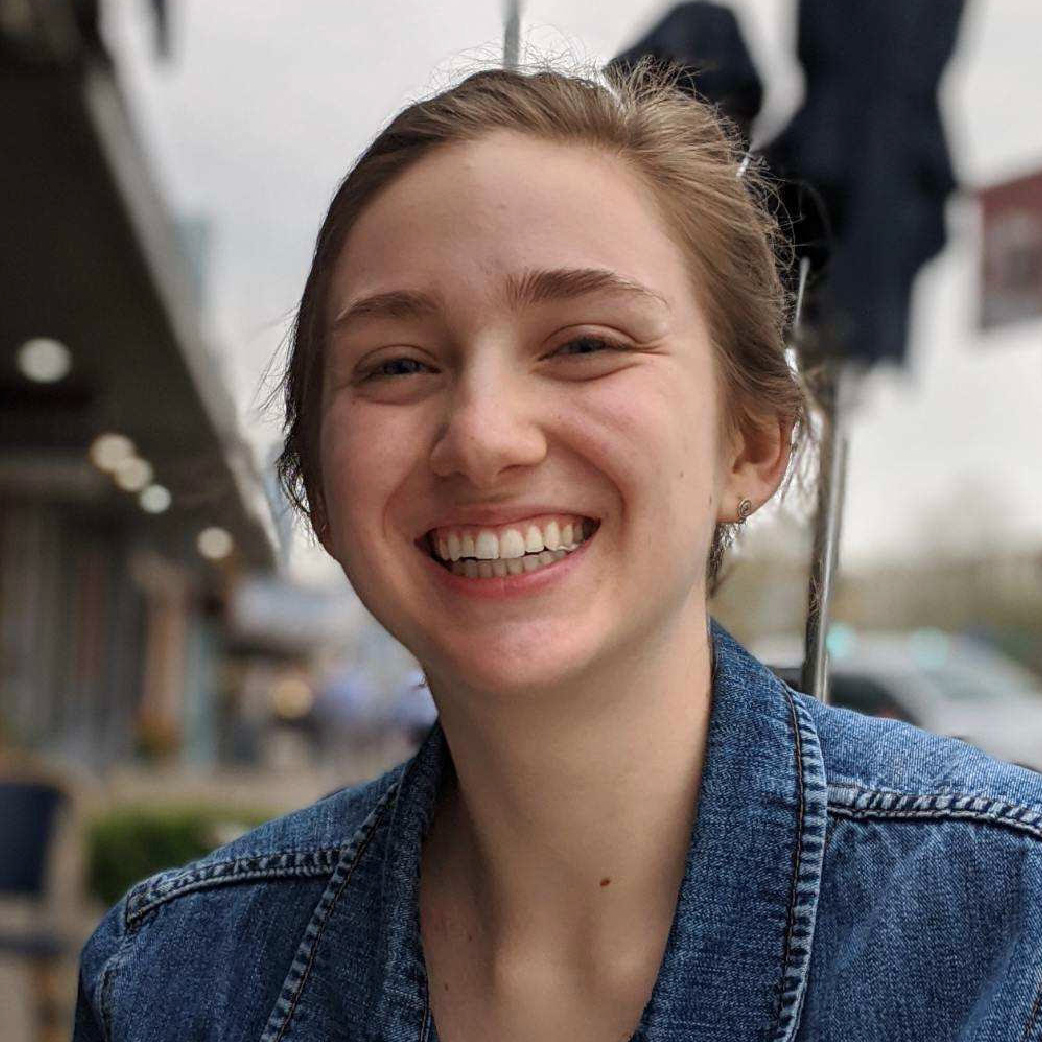
Julia is Hazon Detroit’s Seal of Sustainability Program Manager and is excited to help put more gardens and other sustainable projects into action. Julia fell into a relationship with urban farming during her time as a PeerCorps member (Repair the World’s teen program). She went off to the University of Michigan to obtain an environmental studies degree and then headed straight for Detroit. She had a wonderful experience working as an Americorps VISTA as a Youth Engagement Coordinator and the garden assistant at Yad Ezra. In her free time Julia enjoys reading, yoga, biking, and convincing all her friends to come to Shabbat dinner!
Detroit, MI | (248) 419-9083 | julia.cunnien@hazon.org
As the Development Associate for Hazon, Aliza supports the goals of the Development Department, primarily focusing on managing and supporting the work within the database, grant proposals, and reports. Prior to joining Hazon, Aliza worked in development for the Mid-Atlantic Executive Director at the American Committee for the Weizmann Institute of Science and the National Director of Development for the Israeli-American Council. Born and raised in Detroit, Michigan, Aliza immigrated to Israel after college and lived there for 10 years. She now lives in the metro DC area with her incredible husband and three amazing boys and when she’s not working, Aliza loves spending time with her family and enjoying all that the DMV has to offer, especially the museums, monuments, and outdoor excursions.
Silver Spring, MD | 212.908.2501 | aliza.blumenfeld@hazon.org
Carly is the Education and Program Manager for Hazon, working to develop and facilitate immersive outdoor experiences, environmental education and stewardship programming in Detroit. Prior to Hazon, Carly was the Director of Youth Programs at the Peninsula JCC, working to create transformative and engaging camp and afterschool programs. Carly has a Masters of Science in Environmental Studies, concentrating on urban environmental education and environmental justice and is excited to be back in Michigan (her home state) with her wife and two cats, after living in Bay Area, California for 10 years. When not at work, you can find Carly at the climbing gym, learning the banjo, planning her next camping trip, and trying new food.
Detroit, MI | 248.419.9446 | carly.silverman@hazon.org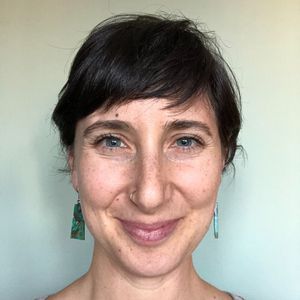
Amit is the Director of Hazon, Detroit and for the past 15 years, Amit has supported collaborative teams committed to cultivating youth leadership and igniting young people to become involved in social and environmental movements. As the Camp Tavor Executive Director, Amit oversaw programs that empower and equip young people and young adults to act on critical social and environmental issues. Amit has a Masters of Social Work from the University of Michigan, focused on youth and community development. Amit lives in Hamtramck, Michigan and loves to spend time hiking, canoeing, picnicking and potlucking with her partner, Evan, her children, Raviv and Lior, and her extraordinary community of friends and family.
Detroit, MI | 248.275.1950 | amit.weitzer@hazon.org
Rachel Siegal loves bringing big ideas to life. She steps in as Hazon’s Chief Development Officer having served as the Managing Director of The Alvin & Lois Lapidus Center for Healing & Spirituality, aka The Soul Center, since 2016. From 2010-2016, she served as the Development Director for the Pearlstone Center. Prior to that, she was a Vice President at The Associated (the Jewish federation in Baltimore), for four years, focusing on financial resource development. Born and raised in Cleveland, Rachel holds an MBA and a Masters in Jewish Communal Service from Brandeis University and an undergraduate degree in Judaic Studies and Africana Studies from Brown University. She and her husband Sam Andorsky have three children. She is an active volunteer with JPRIDE Baltimore, Mitsui Collective, Eden Village Camp, and Baltimore Station. She loves live music, being active, reading historical fiction, and cooking vegetarian meals.
Baltimore, MD | rachel.siegal@hazon.org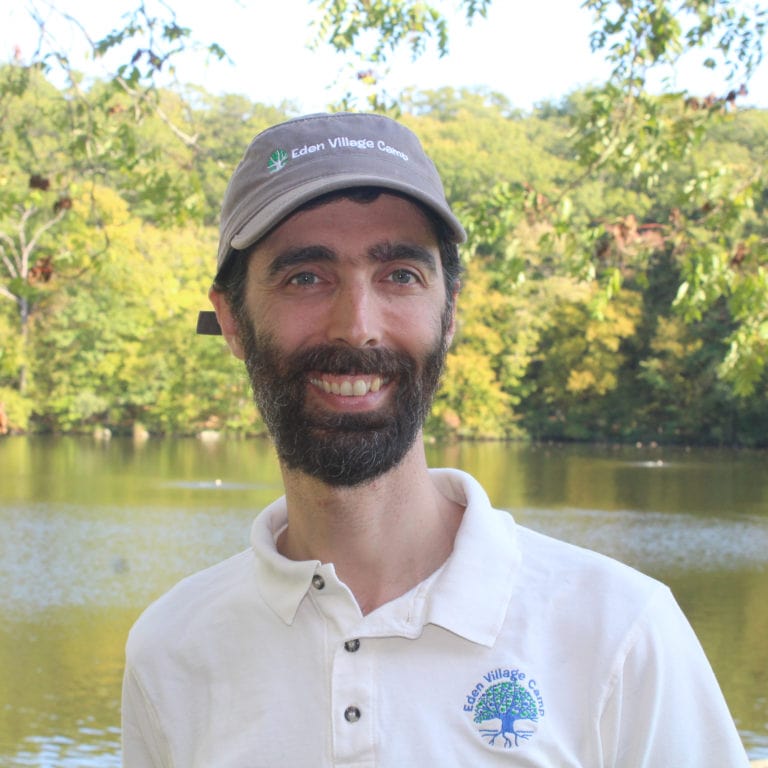
From 2008-2021, Yoni Stadlin served as founding director of Eden Village Camp, the Jewish environmental sleepaway camp with locations in New York and California as a place where Jewish education is synonymous with fostering each child’s self-confidence, empathy and social responsibility. Yoni’s recognitions include the Covenant Foundation’s Pomegranate Prize and Jewish Week’s “36 under 36”, and he holds a BS in Psychology from the University of Pittsburgh and an MA in Informal Jewish Education from the Jewish Theological Seminary. Prior to founding Eden Village, Yoni traveled extensively as an environmental educator and activist. He worked for many Jewish organizations including American Jewish World Service, Birthright Israel, Teva, the 92nd Street Y, and six Jewish summer camps. As a formative experience of environmental activism, in his mid-20s, Yoni spent several months living aloft in ancient redwood trees that were slated to be cut. Yoni lives in Philadelphia with his wife and two children. He acknowledges the extensive privilege he has been given and aims to leverage it toward meaningful change.
Philadelphia, PA | 212.908.2516 | yoni.stadlin@hazon.org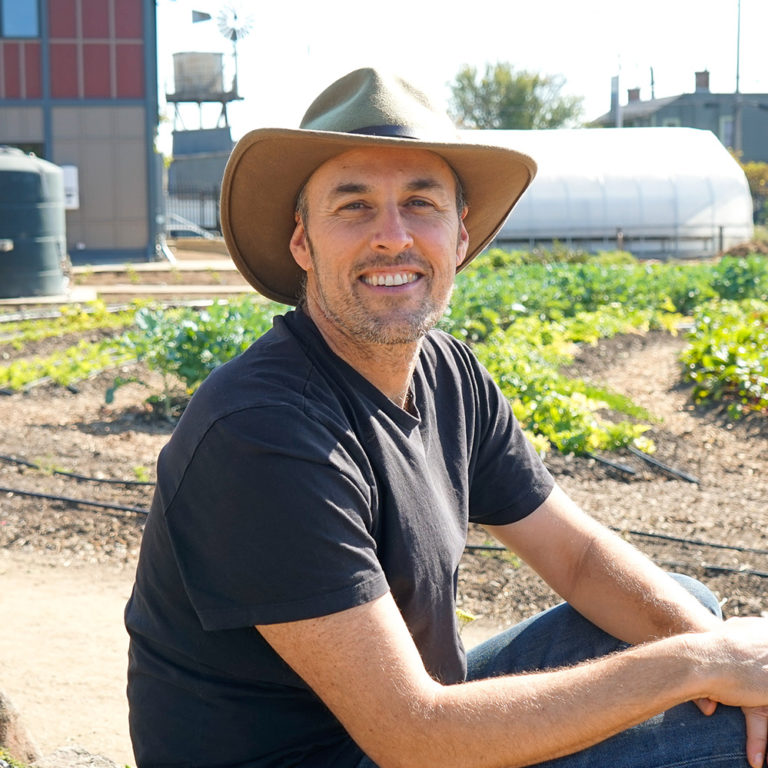
Adam Berman founded Urban Adamah, a Jewish community farm and environmental education center in Berkeley, CA, and served as its first Executive Director from 2010 – 2019. Prior to that he served as the Executive Director of the Isabella Freedman Jewish Retreat Center (2002 – 2009), where he also founded and served as the first director of the Adamah Fellowship. From 1996 – 1999, he served as an educator at the Teva Learning Center and subsequently became its Director. Adam currently runs a non-profit consulting practice, leveraging his experience in the JOFEE world to support other organizations seeking to maximize their impact. His focus areas include organizational development and culture, pedagogy, greening of physical infrastructure, Jewish Environmental education, fundraising and Nonviolent Communication (NVC). He’s delighted to serve in a part-time role as Hazon’s Chief Strategy Officer. He has an undergraduate degree from Brown University in Environmental Policy and an MBA from the Haas Business School at UC Berkeley. He currently lives in Berkeley, CA, with his wife Deena Aranoff and two children, Shira and Maya.
Berkeley, CA | adam.berman@hazon.org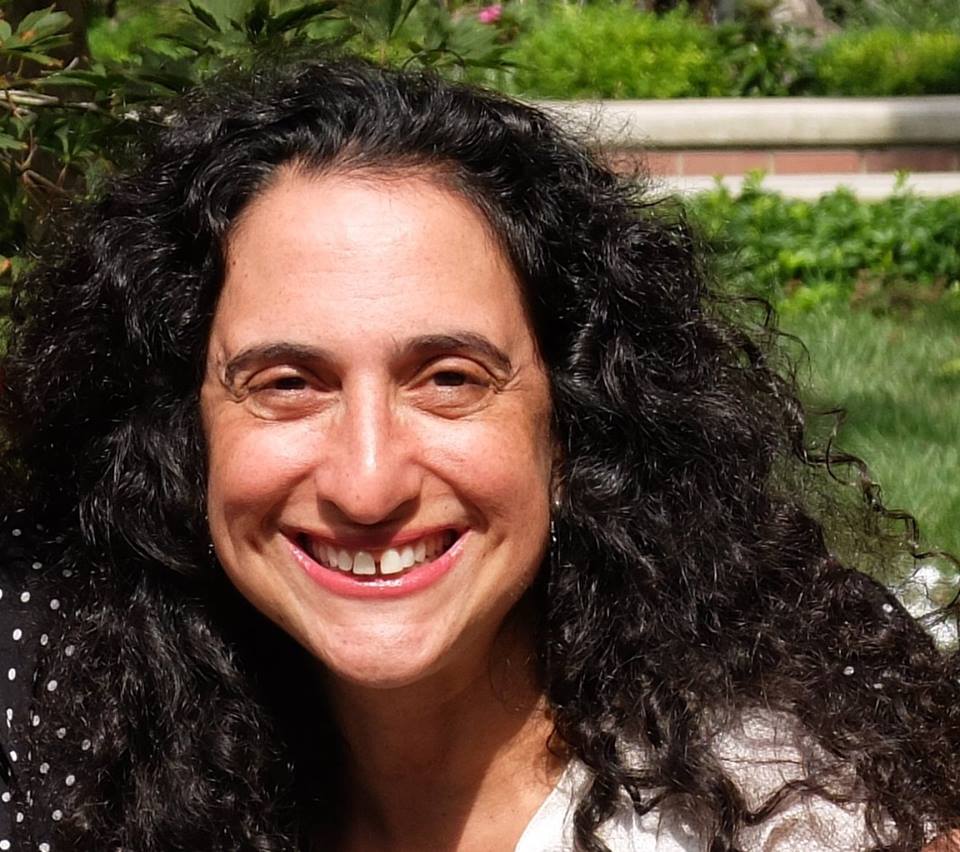
Eve Wachhaus (WALK-HOUSE) builds hospitality systems. She is an experienced hospitality director, a former non-profit executive director and a foodie. Eve’s lively past includes Principal Investigator on a dirt-eating research project for National Institutes of Health, sole proprietor of her own catering company, and management positions with Hershey Entertainment and Resorts Company, Hyatt Regency Baltimore, and several museums. Eve has managed over a dozen food and beverage operations, banquets, catering, restaurants, entertainment catering venues, in the corporate, social and Kosher markets, and loves bringing meaning to people’s simchas. As Executive Director of Habitat for Humanity of the Greater Harrisburg Area, Eve earned her place in Harrisburg’s top Movers and Shapers list and was a recipient of both the Distinguished Service Award and the Excellence in Public Beautification Award from the City of Harrisburg. Eve was a frequent webinar and conference presenter for Habitat for Humanity International (HFHI) with expertise in community engagement, home preservation, marketing and ReStore leadership. She also served in her community’s Long Term Disaster Recovery Committee. As a side hustle, Eve owns Do What Ema Says, a Mediterranean Food Blog and catering company, where you will find she heaps on the spices and encouragement, and also, she’s got a killer Baba Ganoush recipe. When not working, Eve is happiest cooking and dancing around her kitchen with her husband, adult kids, and foster dogs.
Baltimore, MD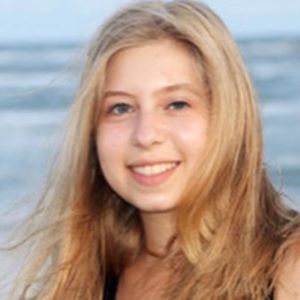
Madeline Canfield is the Jewish Youth Climate Movement Organizing Coordinator. She joined Hazon with a background in youth climate justice activism, having previously organized with the Sunrise Movement, co-founded Houston Youth Climate Strike, co-led the Youth Working Group for the City of Houston Climate Action Plan, and served on the Zero Hour Partnerships Team. She is also a co-founder of the anti-sexual assault organization Jewish Teens for Empowered Consent. She is currently an undergraduate at Brown University, where she spends her breaks from schoolwork sitting outside, either reading or writing.
Providence, RI | madeline.canfield@hazon.org